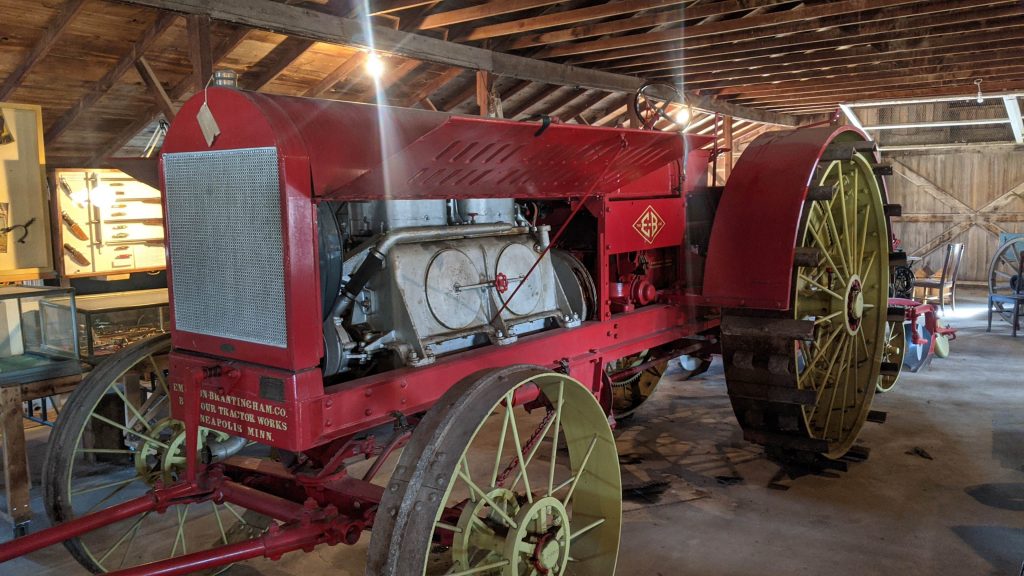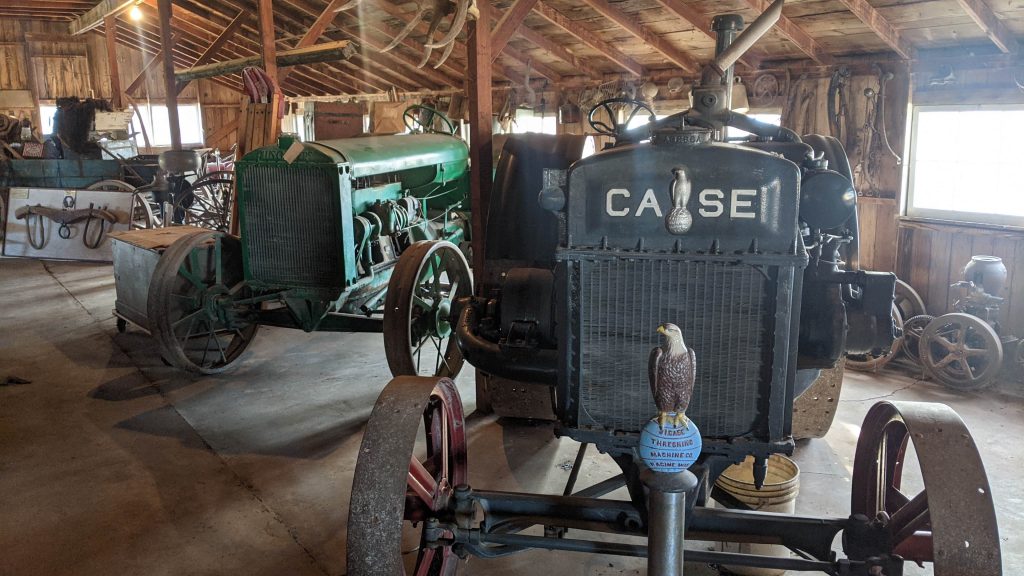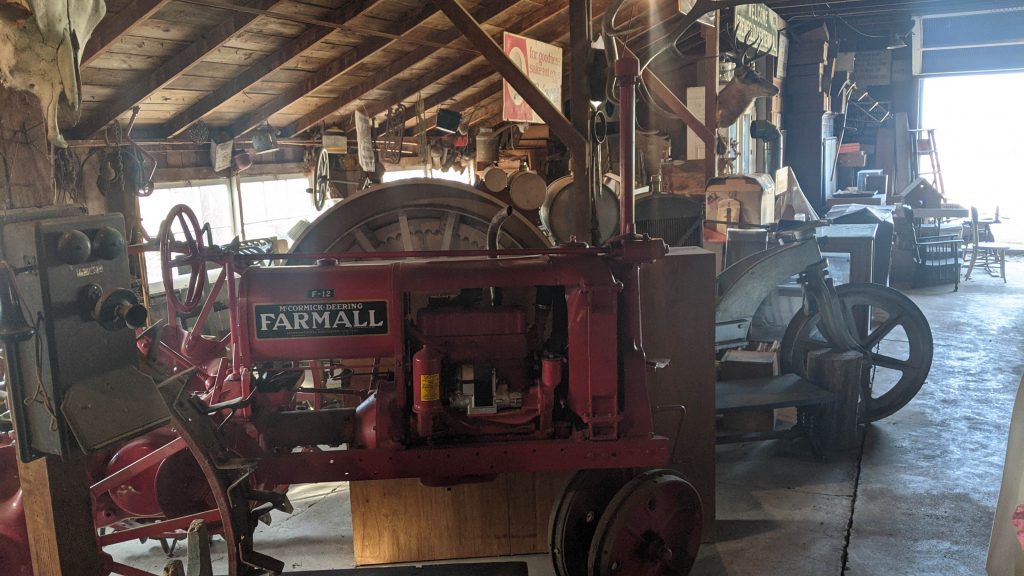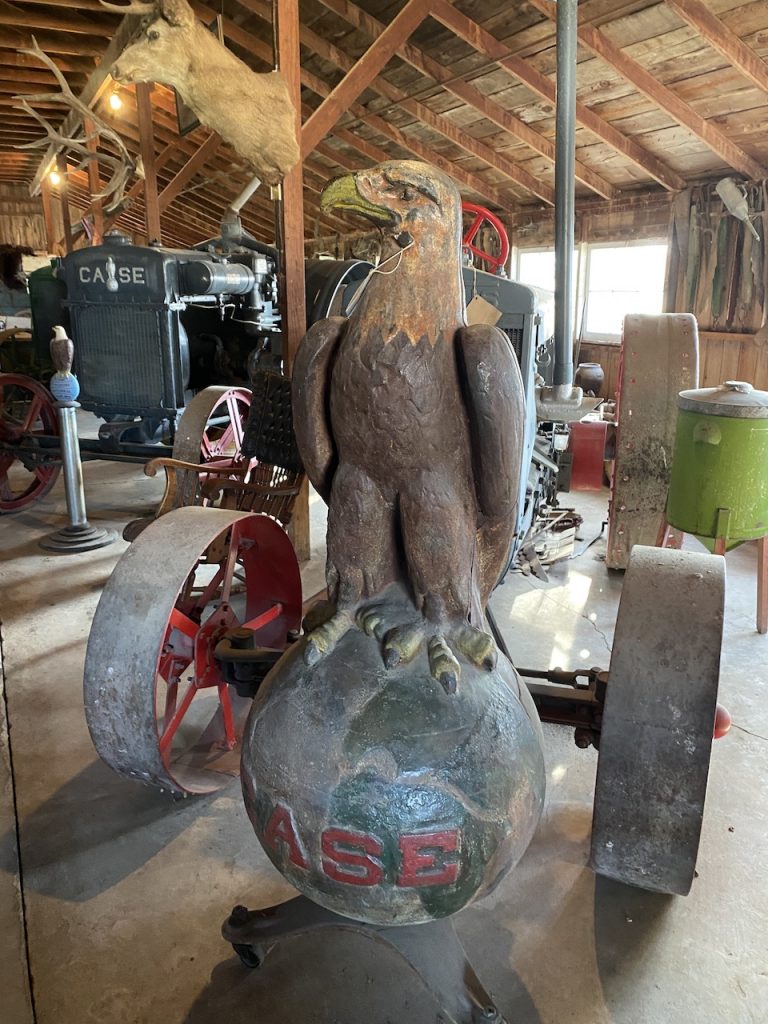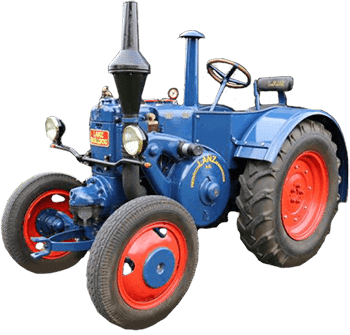June 4, 2021
Family Passes Father’s Life-Long Collection To Others
Earlier this year I traveled to Kansas near the small town of Marion to meet siblings Glen and Brenda Litke. Both of their parents Virgil and Phyllis recently passed away leaving behind a collection that took a lifetime to accumulate.
Virgil Litke was one of the true pioneer collectors of the tractor hobby. As a family man and a person of admirable faith, he always greeted you with a smile and a trip to one of his buildings. It didn’t matter how many times you’d been there, you always saw something new and got to hear a new story. Collections like the Litke’s are waning as these pioneers leave their legacy for the next generation.
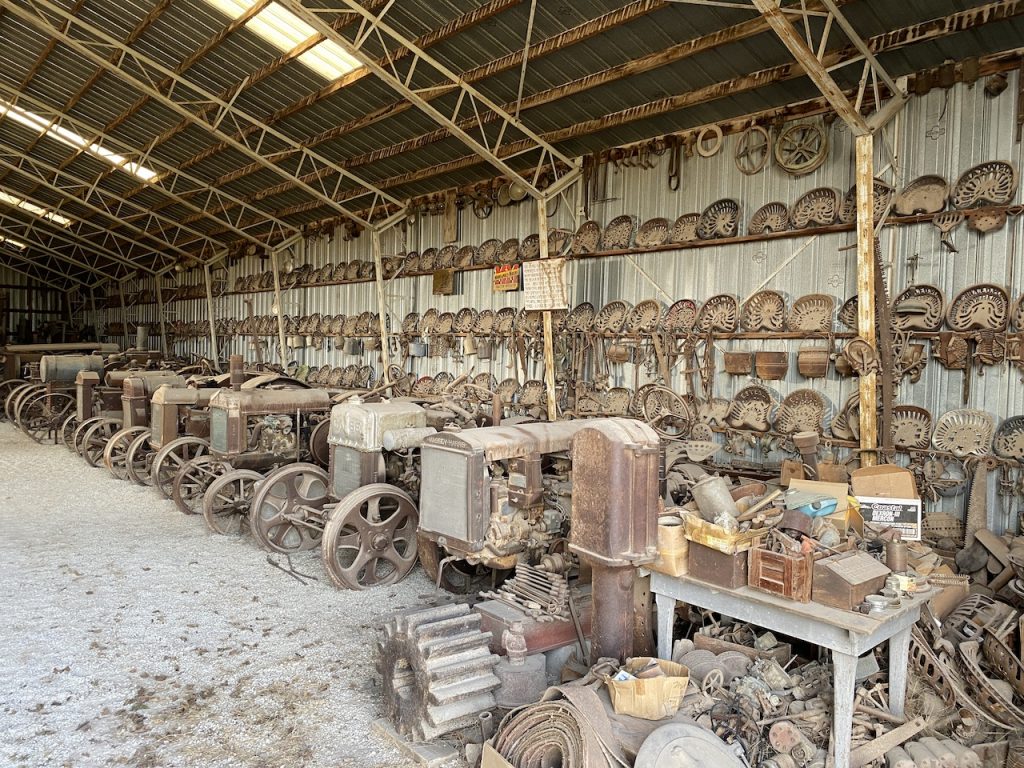
Virgil and Phyllis were married 71 years and it was as much her hobby as it was his. As their children said, it was something that brought them closer together.
“A lot of guys have these hobbies, they kind of have it by themselves and the loving wife she kind of puts up with her husband’s quirky hobbies, but my mom was so committed to my dad, so loved him and loved his hobby, that she was at his side every step of the way and supported him on every move”, Glen Said.
So when Virgil purchased a massive wooden threshing machine, Phyllis was right there with their 1957 Chevy two-ton grain truck loading it onto the back of a Donahue hay trailer.
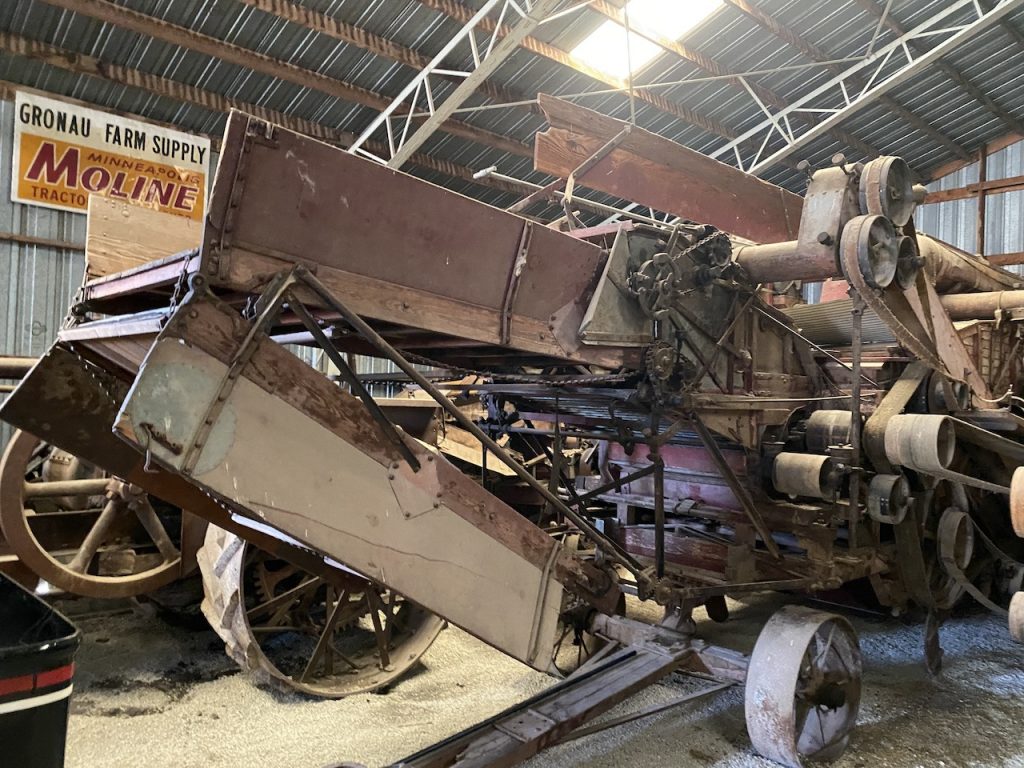
“It’s just a tribute to my parents life in marriage and things that I’ve been a beneficiary of. Mom was supportive of that and it paid off very well for her too because their relationship was exemplary and the love they had for each other was really amazing,” Glen said.
We met Glen in the driveway where we made introductions and then started out on our tour. As we walked towards the first building Glen slowed his stride and said,
“We’ve given a lot of tours over the years and that’s part of the heartbreak I’m going to go through. Because I enjoyed it and my dad did too, so much letting people experience the agricultural history of America that collecting is all about.”
“A lot of museums and rightfully so, you have to be very careful you know don’t touch and don’t climb and you get scolded if you do those things. Dad always said climb on anything and just enjoy it. If you break something it’s not that serious. All these seats need dusting anyway. Just get on a tractor, play with the steering wheel and the kids would just get dirty and dusty climbing on everything, but they went home with an experience. They thoroughly enjoyed that it was hands-on,” Glen added.
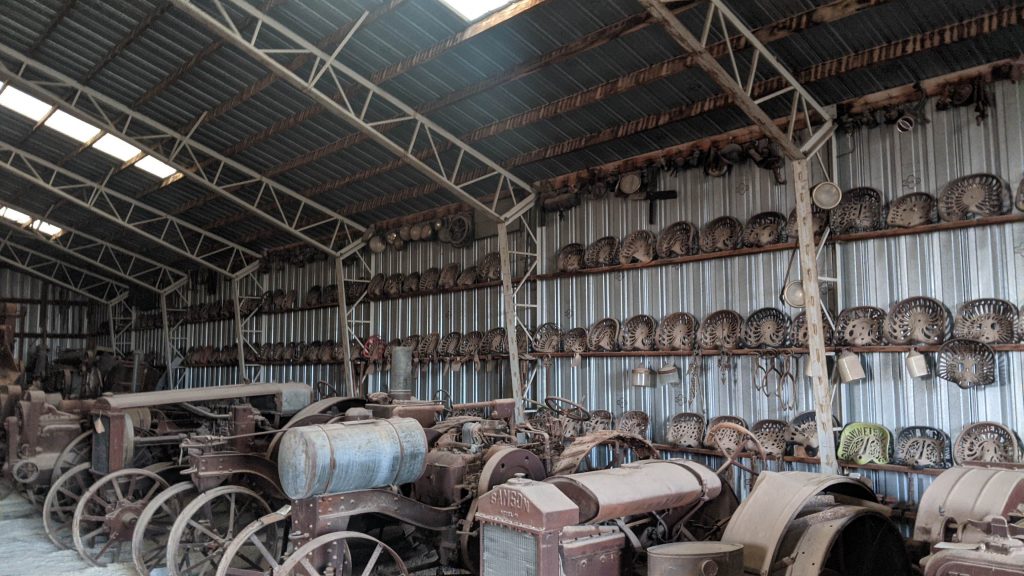
The first building was a steel building, the kind built to hold large equipment for agricultural production. This 50 foot by 120 foot building, that was built in 1967 for just $6,000 US dollars, was packed with antique tractors, threshing machines, antique engine, parts and one of the largest cast iron seat collections I’ve ever seen. The seats lined both walls of the 120 foot long building. Glen gave me a bit of a backstory on how the seat collecting started.
“When Dad was just married in 1948, he said my grandfather had about 4 or 5 cast iron seats up in the grainery and dad was not a collector yet at that time. He just knew he wanted to hang onto those seats. And maybe that sparked some interest. It was years later maybe in the mid 60s when he actually started collecting cast iron seats.”
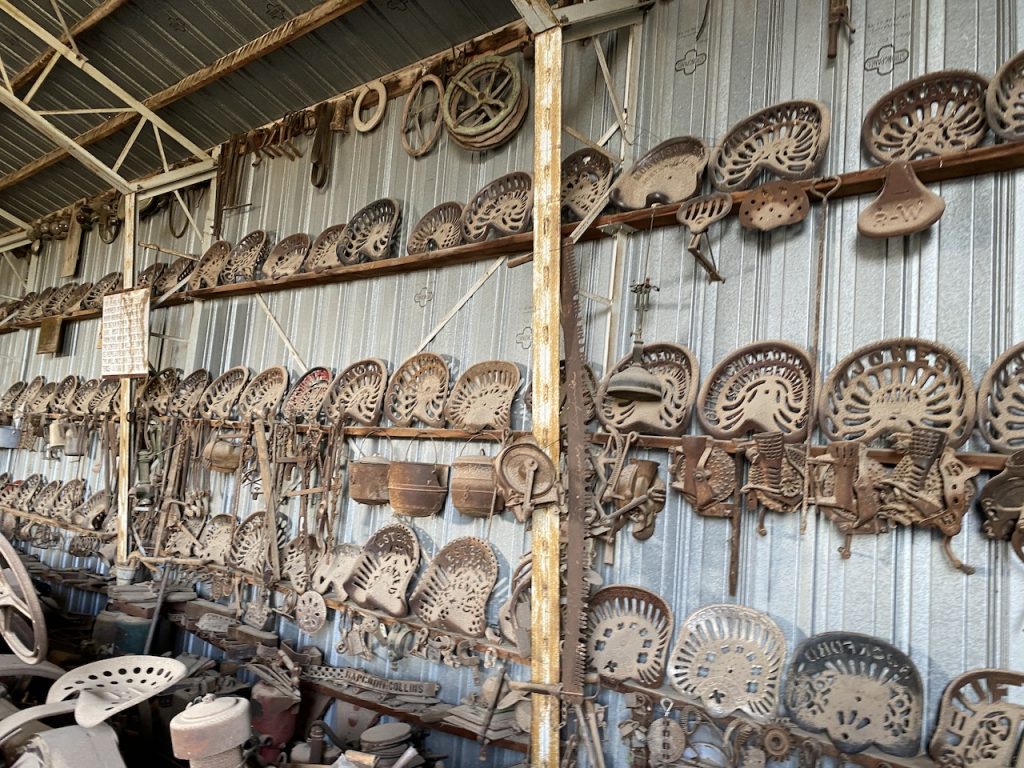
Glen made it clear that Virgil’s interest and search for pieces of agricultural history rubbed off on his children pretty quickly.
“I remember as kids we got our first pair of binoculars and we went to a community not far from here and we’d drive down the road with binoculars and look in the hedgerows and if we’d see a piece of cultivator or plow or something we’d stop and ask about it”, Glen said.
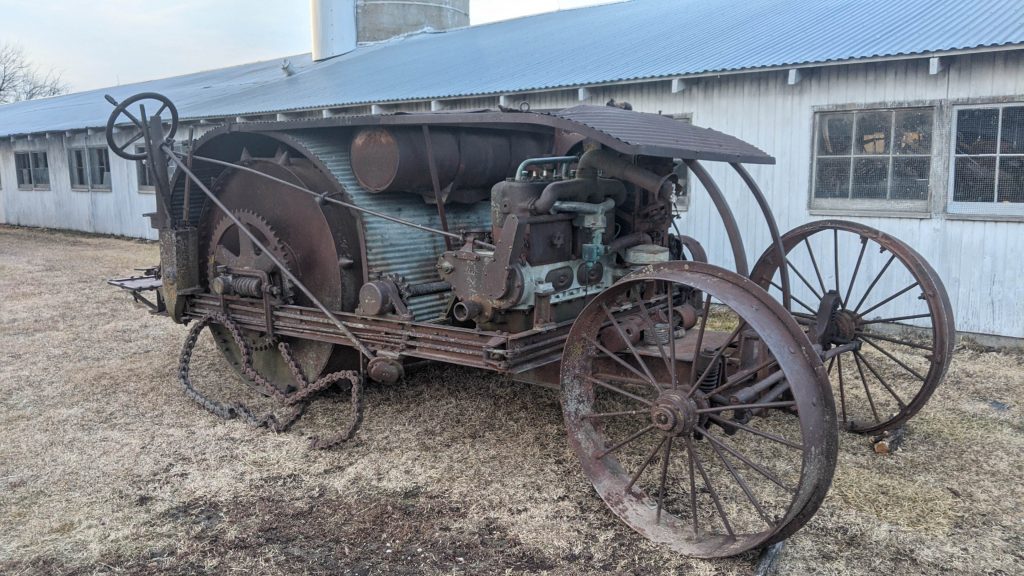
Many of the pieces in the Litke collection were purchased out of hedgerows or off the original farm where the tractor or implement was used. But there were a few things that Virgil purchased at auction. One piece was a Massey Harris GP, an early four wheel drive tractor. Glen had a hand in adding that piece to the collection.
“I was a freshman in high school attending Berean Academy in Elbing, Kansas. My dad was busy and I don’t know exactly what his conflict was, but he could not go to an auction just across the border in Oklahoma. He was going to send Mom and me to go bid on this tractor,” Glen said.

“My mom says, I’ve never bid at an auction in my life. She was just not comfortable with knowing how an auctioneer worked and hearing the rhythm and knowing what the number was and she was just too nervous to bid. Well, I’m a freshman and I’m 13-14 years-old and I’ve been to a lot of auctions with my dad and I’m very comfortable with the sound and what people do at auctions. I bought little trinkets and things before myself.”
“So Dad says well what about if you and Glen go and I’ll give Glen a number on how high he should bid and he can go that far for that money and if not just come back home. I was excited. I got to miss school and we drove out there to Oklahoma. So the auctioneer comes by and starts the bidding process and so this little 13-14 year-old kid is raising his hand and that kind of got the crowd going. They thought that was kind of cute. It might even have helped us get the bid, I’m not sure. I got right up to that number and the bidding quit and he said son you just bought this tractor. You know everybody clapped and I was really proud. I’ve got good memories of that tractor,” Glen said.
Along with the Massey GP, the building was packed with an assortment of early tractors including; a 15-27 Heider, a 20-40 Rumely, an IHC 8-16 mogul, 2 Moline Universals, Cross Motor Cases, a 12-24 Hart-Parr, a 17-30 Minneapolis and a Samson Model M.
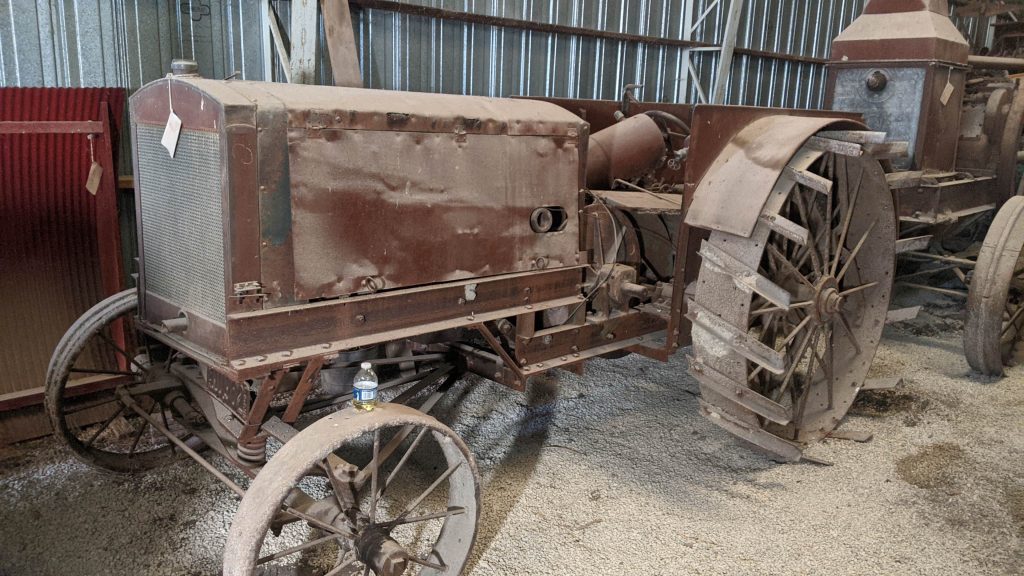
Each tractor was covered in a thick layer of dust. Glen told us the tractors had been moved into place some 50 years ago, shortly after the building was constructed and are in the same condition as when they were parked. Most are in original condition, preserved and ready for restoration. Only one of the tractors, a 12-25 Hart-Parr was driven to its current location.
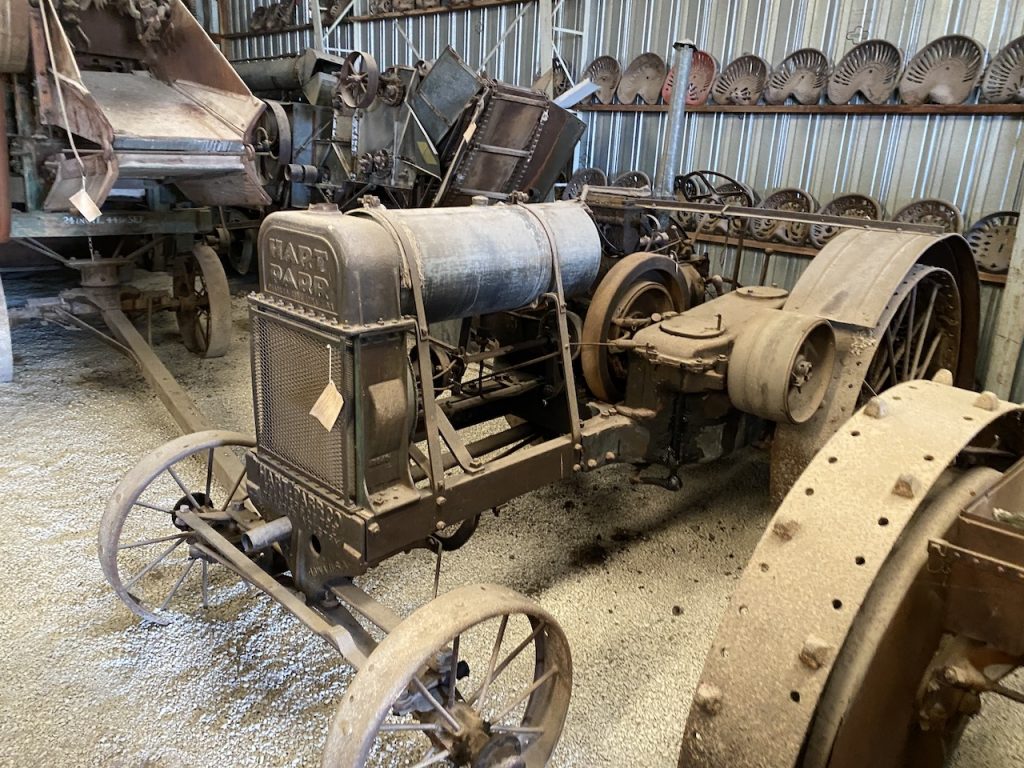
Next we took a tour outside down the fence row where a variety of implements, plows and push headers resided. More tractors were lined up along the outside of the buildings. One of these was a sad looking 15-27 Heider tractor which had a tragic tale.
“I was teaching school at Berean Academy in 1976. I got a call that the shop was on fire and got there in time to see the last of the building fall down on everything. Inside was a completely restored 15-27 Heider tractor, so that was a heartbreaking day,” Glen said.
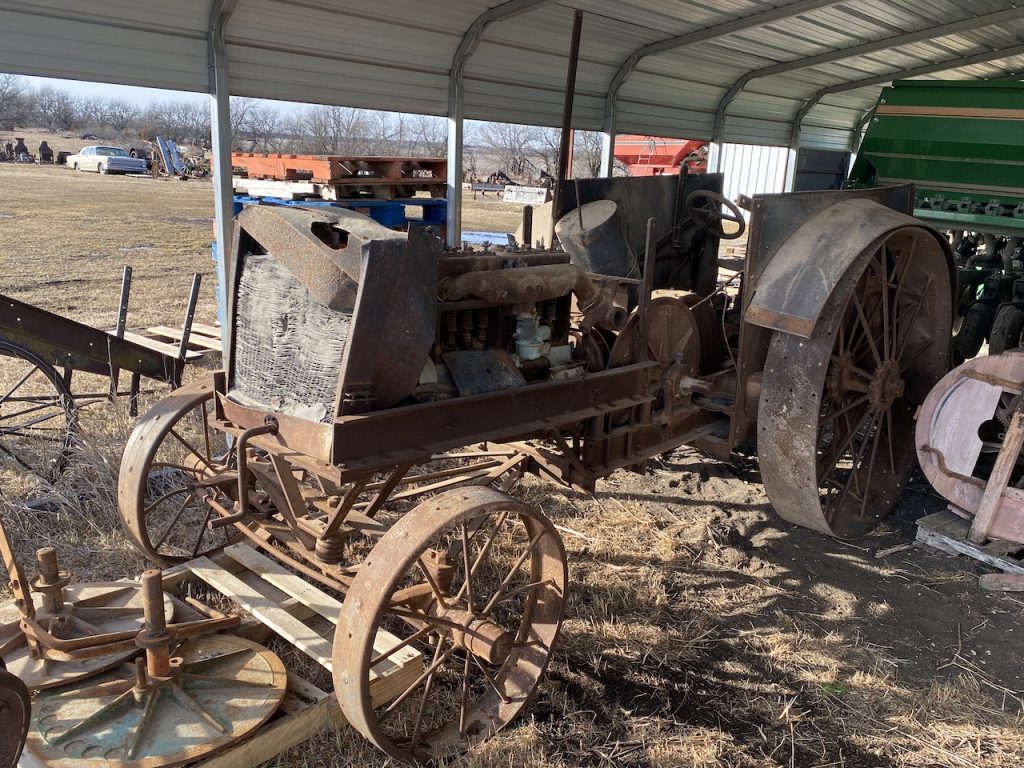
Virgil was able to save a few pieces from the fire, but he was injured in the process. Now where the building once stood is just a blackened slab on concrete. As for the 15-27 Heider, it might be in restorable condition, but it’s hard to tell without taking it apart. The fire was not hot enough to melt the aluminum block, but it bent the channel iron, bowed the wheels and removed all the paint.
Another tractor sitting outside was an early Avery steam engine. We quickly learned this wasn’t just any steam engine. Virgil purchased it off the Avery farm. The Litke’s did some research and discovered there were features on this Avery that weren’t on any other Avery engine.
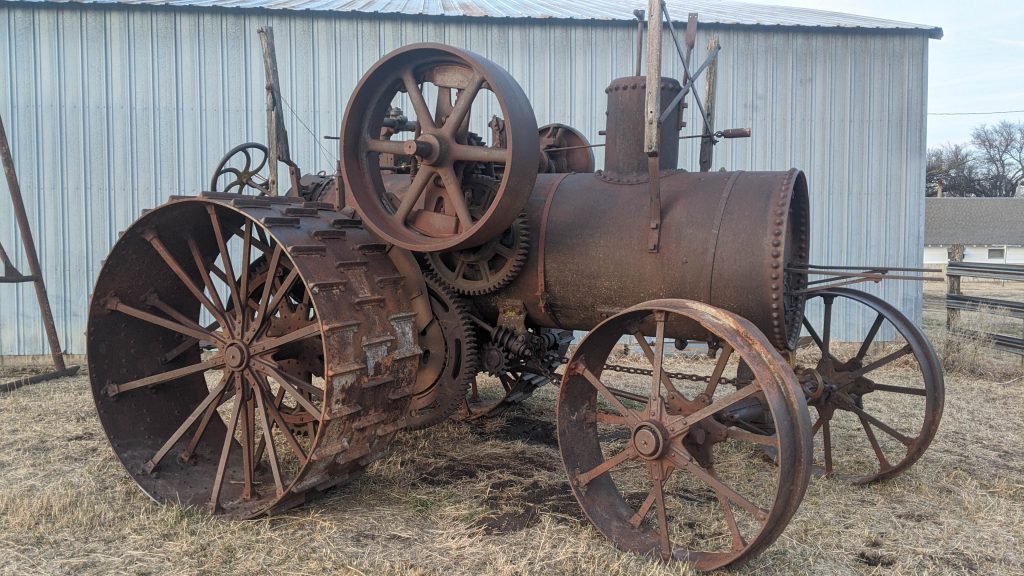
There was nothing about it in the Avery literature or any historical documents. This steam engine just didn’t exist. Virgil consulted with several other collectors and they all came to the realization that this was an experimental engine built for testing on the Avery farm. That made this engine the only one built and an immensely disearble piece for collectors.
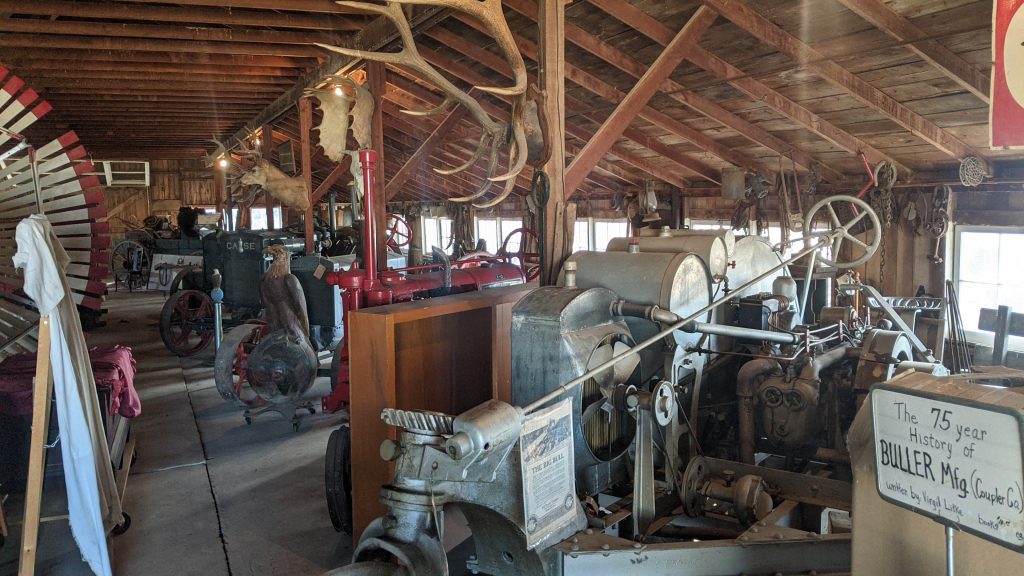
The last building we toured was the “museum”, a cement floor building with restored tractors, signs, antique engines, cast iron toys, farm tools and more. The highlight tractor was an Emerson Big 4-20. This tractor was completely restored and quite an impressive tractor, but its best feature is its mounted plow with original factory plow guide.

We spent the better part of a day looking over the collection and just getting a small sense of what it took to accumulate, preserve and restore these pieces of the past. Soon they will be dispersed to collectors from all over.
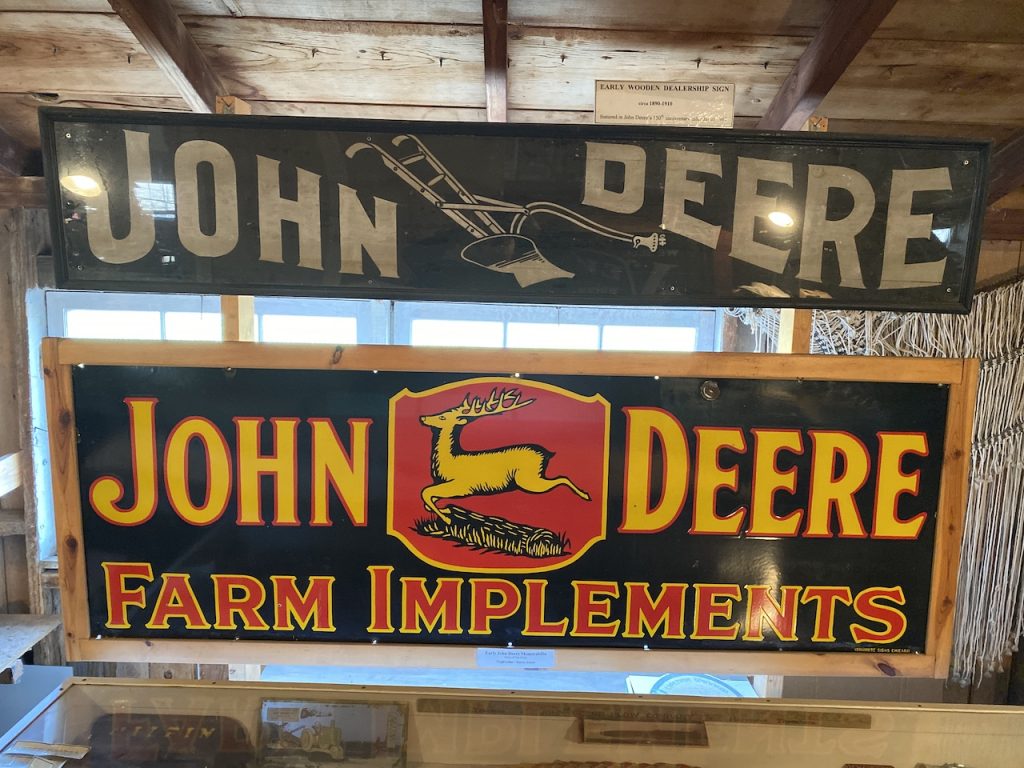
The Litke Collection of Antique Tractors, Memorabilia and Equipment will be a two day auction selling on July 23 and 24 in Marion, Kansas. For more information visit, aumannvintagepower.com.
Story by Dan Boomgarden
